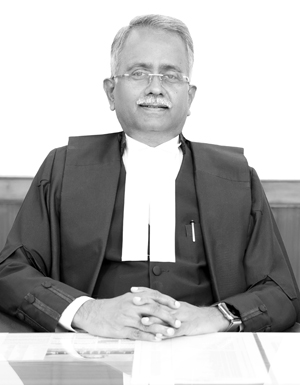
Meet Justice Sarasa Venkatanarayana Bhatti and his Notable Judicial decisions
Justice Sarasa Venkatanarayana Bhatti, born on May 6, 1962, in Madanapalle, Andhra Pradesh, is a sitting judge of the Supreme Court of India, having assumed office on July 14, 2023. He holds a law degree from Jagadguru Renukacharya College, Bangalore, and began his legal career in 1987, practicing at the High Court of Andhra Pradesh for 26 years before his elevation to the bench. Justice Bhatti’s judicial journey includes serving as a judge in the Andhra Pradesh High Court, the Telangana and Andhra Pradesh High Court at Hyderabad, and later as a judge and Chief Justice of the Kerala High Court. His elevation to the Supreme Court provided much-needed representation for the Andhra Pradesh High Court at the apex level.
Justice Bhatti is recognized for his legal acumen, integrity, and competence, with the Supreme Court Collegium noting his considerable experience across various branches of law and his reputation for sound judgment and knowledge. His career is marked by a deep engagement with constitutional, civil, and administrative law, and he has authored judgments that reflect a commitment to fairness, procedural integrity, and the protection of individual rights.
Landmark Judgments
1. G. Archana v State of Andhra Pradesh (2015)
Justice Bhatti authored a significant judgment in G. Archana v State of Andhra Pradesh, which dealt with the procedural safeguards for accused persons in criminal trials. He emphasized the importance of due process and the rights of the accused, reinforcing the principle that justice must not only be done but must be seen to be done.
2. Service and Administrative Law
Throughout his tenure in the Andhra Pradesh and Kerala High Courts, Justice Bhatti delivered several notable judgments on service matters, including the rights of government employees and the interpretation of service rules. His decisions have often clarified ambiguities in administrative law and ensured fair treatment for public servants.
3. Constitutional and Civil Rights
Justice Bhatti’s judgments have also addressed important constitutional questions, such as the right to equality and the scope of state action. He is known for upholding the rule of law and safeguarding fundamental and human rights, ensuring that government action remains within constitutional bounds.
Justice Bhatti’s jurisprudence is characterized by clarity, a principled approach to legal interpretation, and a strong sense of justice. His contributions continue to shape Indian law, particularly in the areas of procedural fairness, administrative justice, and constitutional rights. He is set to serve on the Supreme Court until May 2027, further influencing the development of Indian jurisprudence












comments